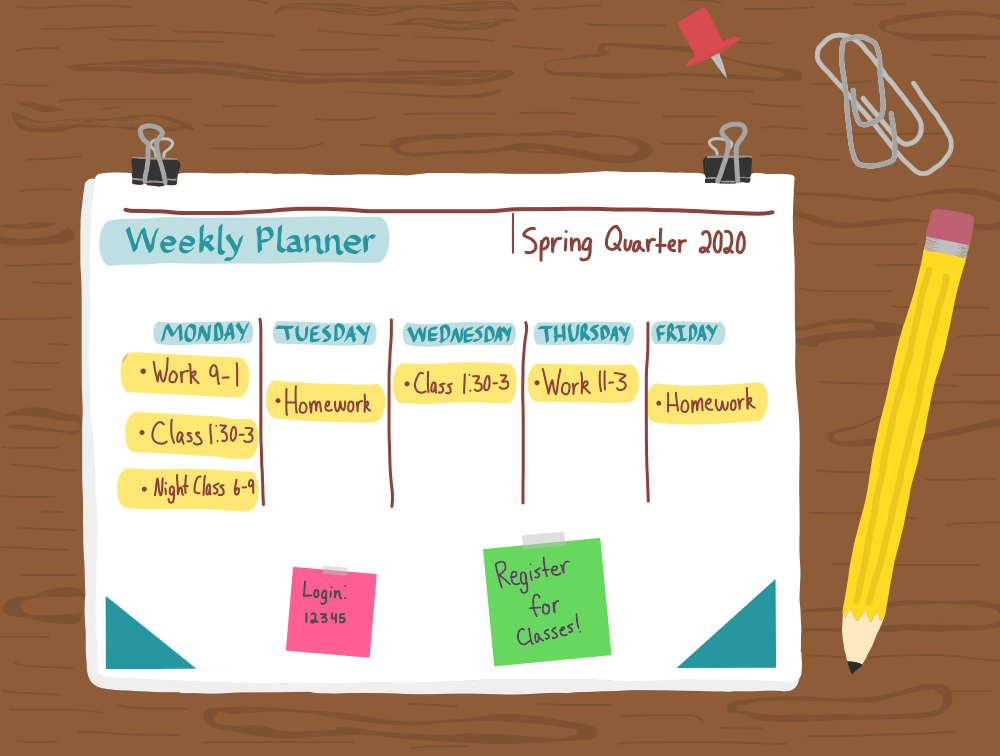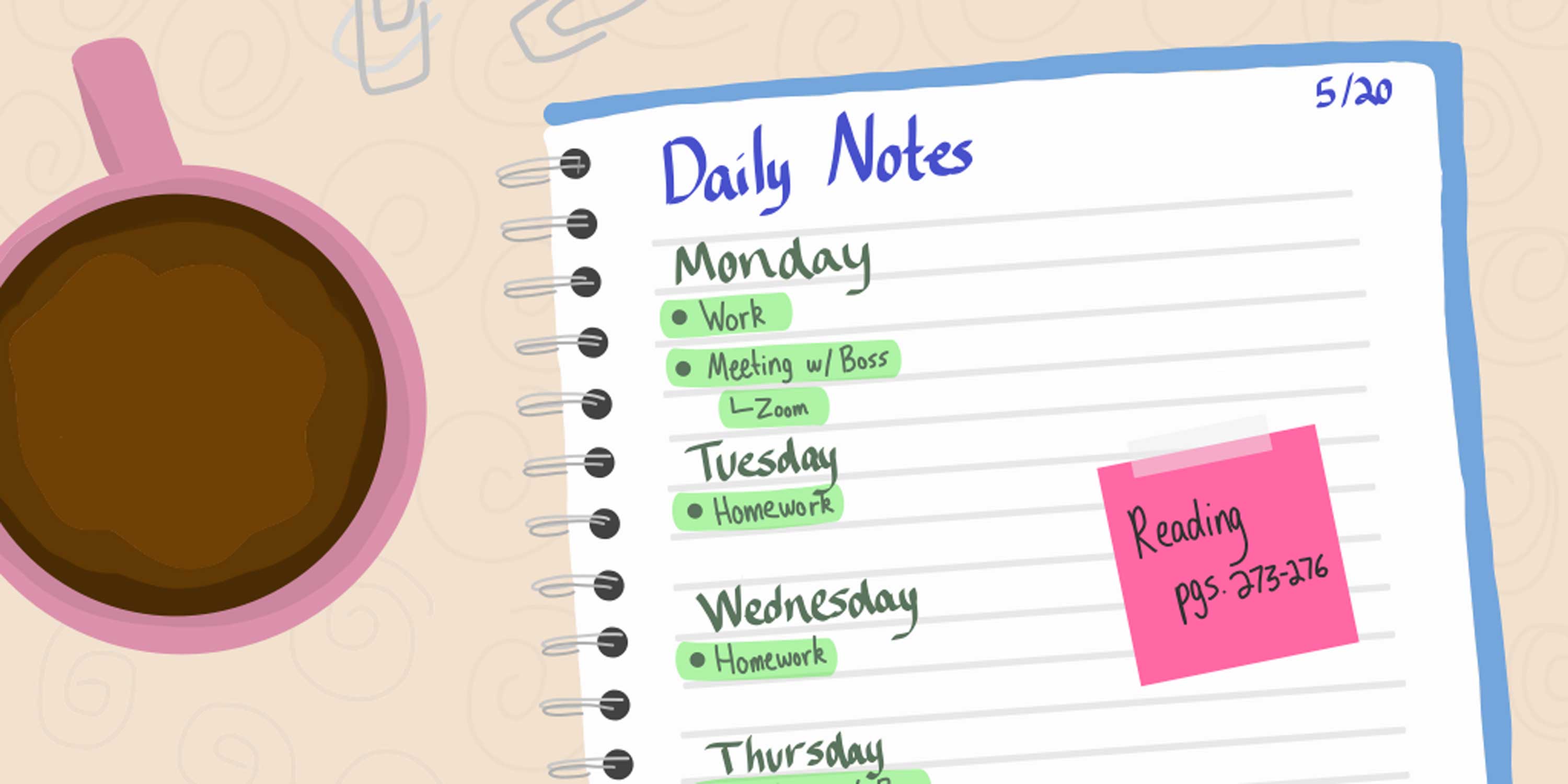Some DePaul student workers are not only tackling their newly online classes, but also navigating virtual offices. Amid the COVID-19 health crisis, many students have begun working from home — they’re learning to adapt to both a change in course load and workflow.
While many student workers may be facing reduced hours for less work, they will still be paid for their previously agreed upon weekly schedule. This will stand through June 30, though it is still undecided if student workers are guaranteed their jobs after this date. Telework is set to continue until at least June 12, according to DePaul Newsline on April 24.
Student workers all across campus work in a variety of positions. Many are administrative assistants who help to communicate with students for a specific office and support supervisors in office tasks. Others may work in resource departments such as the Women’s Center or the Office of Multicultural Student Success to provide resources to fellow students.
Due to the COVID-19 pandemic, student workers have had to learn how to work remotely in order to complete their usual, or unusual, tasks. Student teleworking, which varies from office to office, can include anything from answering emails from students, taking Zoom meetings, and texting with supervisors in order to complete daily work.
Some student workers have had to set up a “virtual office” on their own laptops that includes typical programs used for work, which were previously only available on DePaul-owned computers. This “virtual office” may include accessing work emails and documents typically needed for work on their own laptops at home.
Depending on the job, student workers face different challenges, and in response, the reaction to this change has been mixed.
Jacob Siepker, a sophomore working as an admissions assistant in the Undergraduate Admissions Office, has enjoyed the change to teleworking.
“Telework has been pretty easy so far,” Siepker said. “My responsibilities are less and my pay is the same. I do miss talking with my co-workers and prospective students, though.”
Siepker said there are new opportunities now that his daily tasks are so different.
“I actually asked my manager the other day for more stuff to do since there is no point to me sitting at my computer for a four-hour shift with nothing to do,” Siepker said. “Now, I am doing some graphic design work for the office too, which I am happy about since I have an animation minor, and playing around with designs in Photoshop is always fun.”

Agenda inspired by Jacob Siepker’s work week. June Noyes, 14 East.
Those whose jobs depended on direct interaction with others have been more difficult to navigate. Eryn Fleener, a junior who works as a peer mentor for the Education and Development Grant for Employability (EDGE) program, is used to talking face-to-face with other students. Now, these meetings must be done over Zoom.
“We have had to do everything through Zoom meetings, which can be hard when we have things like discussions, presentations, etc.,” Fleener said. “It’s hard to hold these things over Zoom. It’s also hard to mentor them when I am not able to be there with them, or only see them for a short amount of time through a screen.”
The peer mentor also says that her work day now consists of completely virtual interviews, weekly meetings and presentations.
“I understand why the work is the way it is, and will continue to put everything into what I am doing,” Fleener said. “However, mentoring and working with people is a hard thing to do virtually and I miss having the in-person interactions.”
Keeping up with work from home as well as navigating online learning can also be difficult for student workers. Not only do they have to figure out how to prioritize school work and classes, but carving out the time and focus needed for telework.
Molly Langfels, a sophomore who works for Catholic Campus Ministry’s (CCM) Social Justice and Advocacy Team, has been working on adapting to these new changes from a regular quarter.
“I have definitely put my coursework ahead of my CCM work, but that is partially because I base a lot of my worth on school and doing school work has been the bit of normalcy that I have really come to rely on,” Langfels said. “I have, however, been scheduling meetings with my team and my supervisor, and all of us are working together to ensure that we achieve as much as possible while still maintaining our mental health.”
The rapid shift to an isolated work and school day has been found to be negatively affecting the mental health of students. In a survey conducted in April 2020, media organization Axios found that 51 percent of students reported feeling some sort of mental distress following the change to remote learning.
Fleener has kept herself on track by sticking to her normal routine to handle this change.
“It has been hard to balance working online and school work,” Fleener said. “However, I just try to handle it as I would if I was working in person. If I would typically cut out two hours on a specific day for work then I keep that and stop doing coursework for that time.”

Agenda inspired by Eryn Fleener’s work week. June Noyes, 14 East.
With no announcement on whether or not teleworking will be continued for the summer, student workers do not know what the future of their jobs look like.
Siepker said the change to telework may be useful once regular work starts up again.
“I would like to know how telework will be incorporated into student work after COVID-19 has settled down,” Siepkers said. “While not all the tasks can be done from home, I think it would be entirely possible to schedule students for telework shifts as well and increase office productivity while not requiring us to always commute.”
If you are a student worker and have questions regarding your employment at DePaul amid COVID-19, view the resource page the Office of Student Employment created.
Header image by June Noyes




NO COMMENT